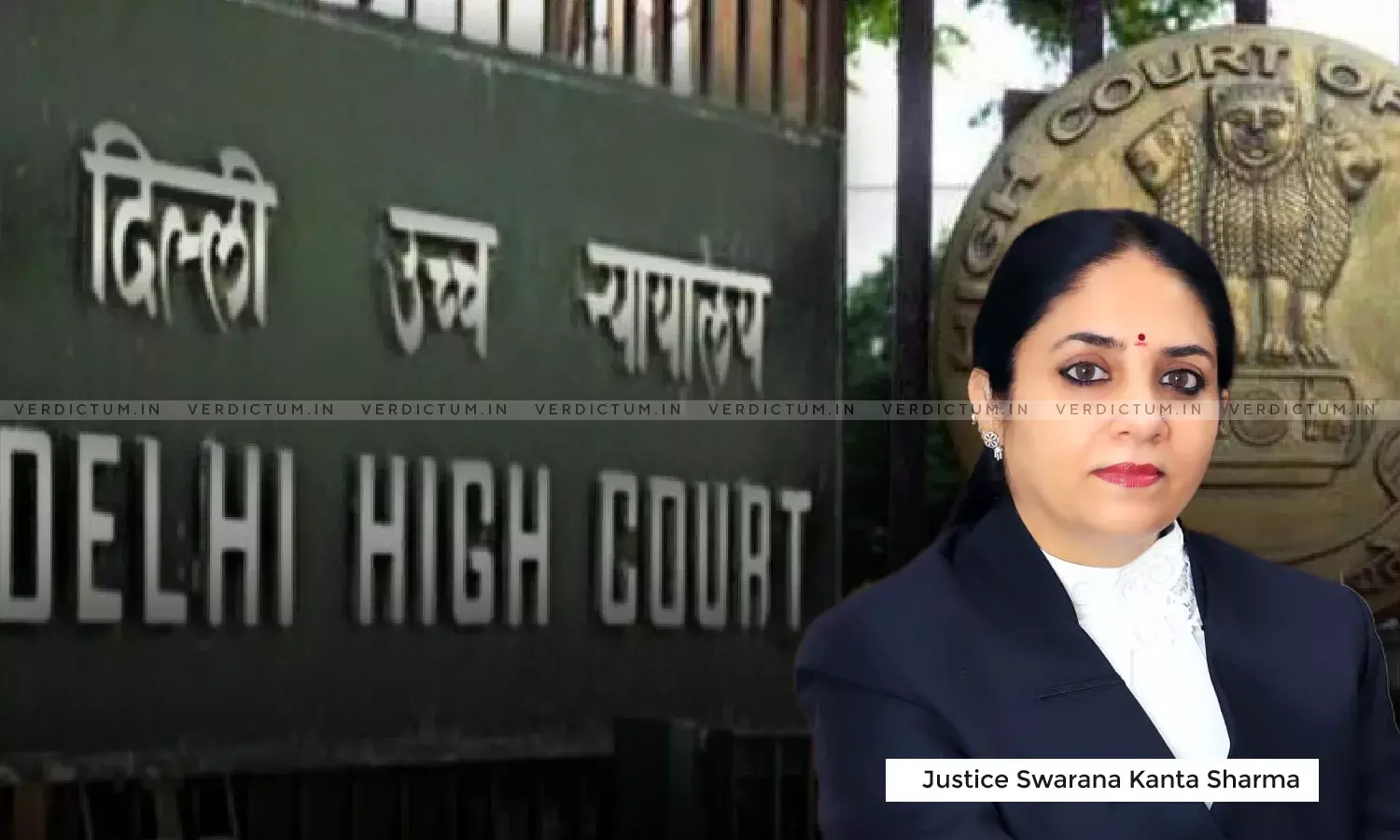Even A Judge Has Right To Support Family Against Any Harm: Delhi HC Dismisses Bail In Case Where Victim Is Relative Of A Judicial Officer

Justice Swarana Kanta Sharma, Delhi High Court
The Delhi High Court held that even a judicial officer holds the right fundamental and private rights, including right to support and protect their families from harm or disrepute.
The Court dismissed a bail application from the accused, who argued injustice, citing the fact that the complainant's family member is a judicial officer.
The Bench of Justice Swarana Kanta Sharma observed, “a judicial officer by virtue of being a judicial officer does not waive his fundamental rights which are available to all other citizens of the country as also his social and private rights to look after and stand by his family. He also has a right as the biological sibling of the complainant/victim to stand by her and his family and taking action against any person who brings harm or disrepute to his family”.
Advocate Mahesh Chand appeared for the Petitioner and Additional Public Prosecutor Manoj Pant appeared for the State.
A bail application was filed under Section 439 of the Code of Criminal Procedure, 1973 (CrPC) to secure regular bail in a case involving offences under Sections 419, 420, 493, 494, 495, 376, 109, 201 and 120B of the Indian Penal Code, 1860 (‘IPC’).
The case originated from a complaint wherein she alleged that she had met the main applicant, through the online matrimonial site “Jeewansathi.com.” They got married, but later she received a call from a woman named Nikita, claiming to be Aarav's wife. The complainant discovered that the applicant was already married when he married her, and he had taken away her gold jewellery, mortgaging it for a bank loan.
After a thorough examination of the records, the Court noted that contrary to the assertions made by the Applicant, the involvement of one Mohit, is evident. The statement recorded under Section 164 of the CrPC and the First Information Report (FIR) both indicate that only one person from the side of the main applicant attended the marriage, and subsequent statements under Section 161 of the CrPC strengthen the allegations.
Moreover, the Bench observed that the investigation revealed that an amount of Rs. 50,000/- was transferred into Applicant’s bank account under pretences by Arav. This financial transaction, coupled with the statements, points towards a conspiracy between the main applicant and Mohit.
The Court emphasized that the complainant's familial relation to a judicial officer does not diminish her rights or entitlement to justice. Denying her equal opportunities based on her brother's profession would be a miscarriage of justice.
In addition, the Court emphasized that a judicial officer, solely by virtue of holding such a position, does not relinquish his inherent and fundamental rights. These rights, which are accessible to all other citizens of the country, encompass both social and private aspects, allowing the judicial officer to attend to and support his family. Furthermore, being the biological sibling of the complainant or victim grants the judicial officer the right to stand by them and their family, and to take appropriate measures against any individual who poses a threat or brings disrepute to his family.
In the context of this case, the Court noted that even if the judicial officer is biologically related to the complainant, he retains the right to stand by his biological sister. Importantly, the available record does not provide any indication that the judicial officer is personally involved in the proceedings or interfering with the judicial process on behalf of the complainant.
The Bench emphasized that arranged marriages in India rely on family decisions and assurances from friends. The assertion that the character of the main accused was disclosed to the complainant's brother was contradicted by the record.
The Court noted the gravity of the charges, with concerns about potential threats to witnesses. Additionally, the Court expressed dismay at persistent attempts to disclose the identities of the complainant and her brother, violating legal confidentiality requirements.
The Bench observed that the denial of justice to an accused is impermissible when a judicial officer or their family acts as a complainant. “Being a judicial officer should not result in denial of justice to him or his family in his individual capacity and be merely dismissed as occupational hazards. Only because the accused/applicant has failed to secure the desired order of bail from a Court, it cannot authorize him to make a deliberate attempt to scandalize a judicial officer and shake the confidence of the litigating community”, the Court observed.
The Court observed that the failure to secure the desired bail does not authorize attempts to scandalize a judicial officer, undermining confidence in the legal system. Suggestions of bias based on relationships undermine the principles of impartiality and justice within the judicial system. The Bench noted that revealing the identity of judicial officers exploits their reluctance to speak publicly, risking damage to their reputation.
The Court directed the Registry to implement measures in cases involving sexual offences. Going forward, petitions must include a certificate stating that the complainant/victim's identity isn't disclosed. This directive addresses the practice of revealing such details in annexures, despite previous notifications and court directions. The Court highlighted the need for guidelines evolving from situational necessities.
Accordingly, the Court dismissed the Bail Application.
Cause Title: Mohit Pilania v The State Govt. Of NCT Of Delhi And Anr. (2024:DHC:510)

